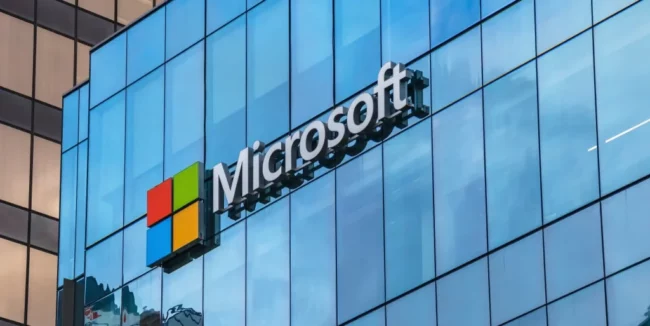Microsoft recognizes that Africa is the future hub for technology skills and has a wealth of young talent to tap into, and said it is partnering with governments to facilitate access to digital skills.
Ola Williams, Country Manager, Microsoft Nigeria, said in an article that to develop a new generation of technology professionals that will enable the continent to compete in the global digital economy and drive innovation in Nigeria, It says it is important to promote access to digital skills and technology. Continent.
To this end, he announced that Microsoft will partner with the Federal Government to accelerate Nigeria’s digital transformation, upskilling Nigeria’s 5 million people and creating over 27,000 new digital jobs. With the promise of 4 million Nigerians, free technology skills content will be available to 4 million Nigerians through collaboration with local telecom providers like MTN.
“Microsoft has also partnered with Flapmax to create the FAST Accelerator program to help startups scale quickly by integrating cutting-edge technology, comprehensive skills development, technical support, and business development strategies. We help you access new growth opportunities.
Develop the skills needed for the AI revolution. Advances in AI technology are the talk of the world, and for good reason. AI is the defining technology of our time. And as companies invest in AI, the demand for skilled professionals will continue to grow,” he said.
According to the State of AI in Africa report, Williams said that if current trends continue, AI and its associated startup ecosystem in Africa could be a big win.
“It is estimated that by capturing just 10% of the global AI market, African economies could expand by as much as 50% of their current GDP,” he said.
He said that to benefit from the global transformation currently taking place, businesses and people across Nigeria must be able to harness the transformative potential of AI.
He said strategic partnerships across the private sector could enable more holistic and sustainable efforts to be implemented, unlocking the potential of Africa’s youth.
He said Zindi, Africa’s leading AI community, and Microsoft are working to advance digital skills across the continent, equipping a new generation of young, tech-savvy Africans with the skills the market demands in today’s and future workplaces. We have made it clear that we are offering an opportunity to win.
“Empowering Africa through digital skills and AI technologies is not just a vision, but a strategic reality, and Microsoft is deeply invested in this. By closing the digital divide and fostering innovation, we are We are laying the foundations for a bright future where talent shines on the world stage. Together, we can turn challenges into opportunities and ensure that no one is left behind in this digital revolution,” he said. I did.
The country manager justified the need to increase access to digital skills, saying that in an increasingly digital world, the importance of equipping Africa’s youth with digital skills cannot be overstated. No, he pointed out.
“An oft-cited statistic is that Africa, the world’s youngest continent, will account for one-fifth of the world’s total labor force and one-third of the total youth labor force by 2030.
“Africa can seize this opportunity to leverage its youth and become a global hub for technology skills, but the digital skills gap is widening.
“It is important to develop the skills needed to compete in the global digital economy. To realize our vision of Africa as a technology hub, we are building digital literacy and equipping entrepreneurs to succeed. We need to focus our upskilling efforts on three key areas: equipping people with the skills they need and advancing the AI skillsets needed to take full advantage of this technology’s potential.”
Digital literacy must be the starting point, he said, noting that as technology rapidly changes the workforce landscape, employers around the world will seek workers with improved digital skills. did.
“And, according to the World Bank, most of the demand for these digital skills will come from occupations outside the ICT sector, driven by companies adopting digital technologies.
“We expect 70% of this demand to be for basic skills, followed by 23% for intermediate skills outside of ICT fields.
“Recognizing the importance of digital skills, countries across the continent are developing plans to build the capabilities needed for the global digital economy.
“The Nigerian government is actively investing in digital skills development to empower the youth and strengthen the digital ecosystem, but the challenge of reaching youth and improving their skills is significant. ” he said.
Recognizing the need to expand access to digital skills development programs, Williams said Microsoft launched the Global Skills Initiative in 2021, combining resources from LinkedIn Learning, GitHub, and Microsoft Learn.
He said: “This program has enabled 80 million jobseekers around the world to access digital skills, with over 196,000 learners in Nigeria to date.
Microsoft also partnered with the African Development Bank and the Government of Nigeria to launch the Digital Nigeria e-learning platform.
One year after launch, 125,000 registered learners across the country have used the platform and completed 111,000 courses in either basic, intermediate, advanced digital skills, or entrepreneurship and soft skills.
“To date, Microsoft’s collective upskilling efforts in Nigeria have reached 1,164,815 people and earned 89,946 Microsoft certifications.
“Supporting entrepreneurs who drive innovation, start-ups and upskilling of small and medium-sized enterprises must be the second focus area,” he said.
Also read the Nigerian Tribune’s top article

